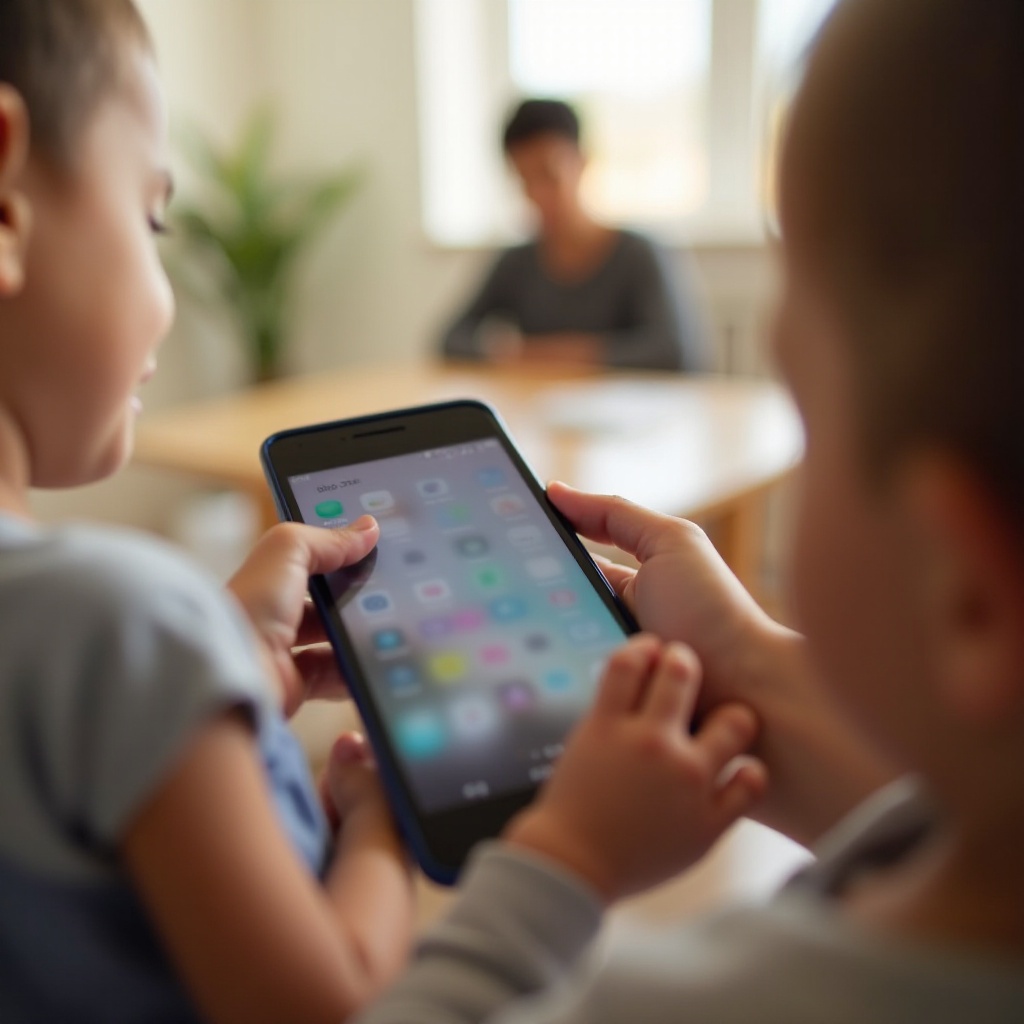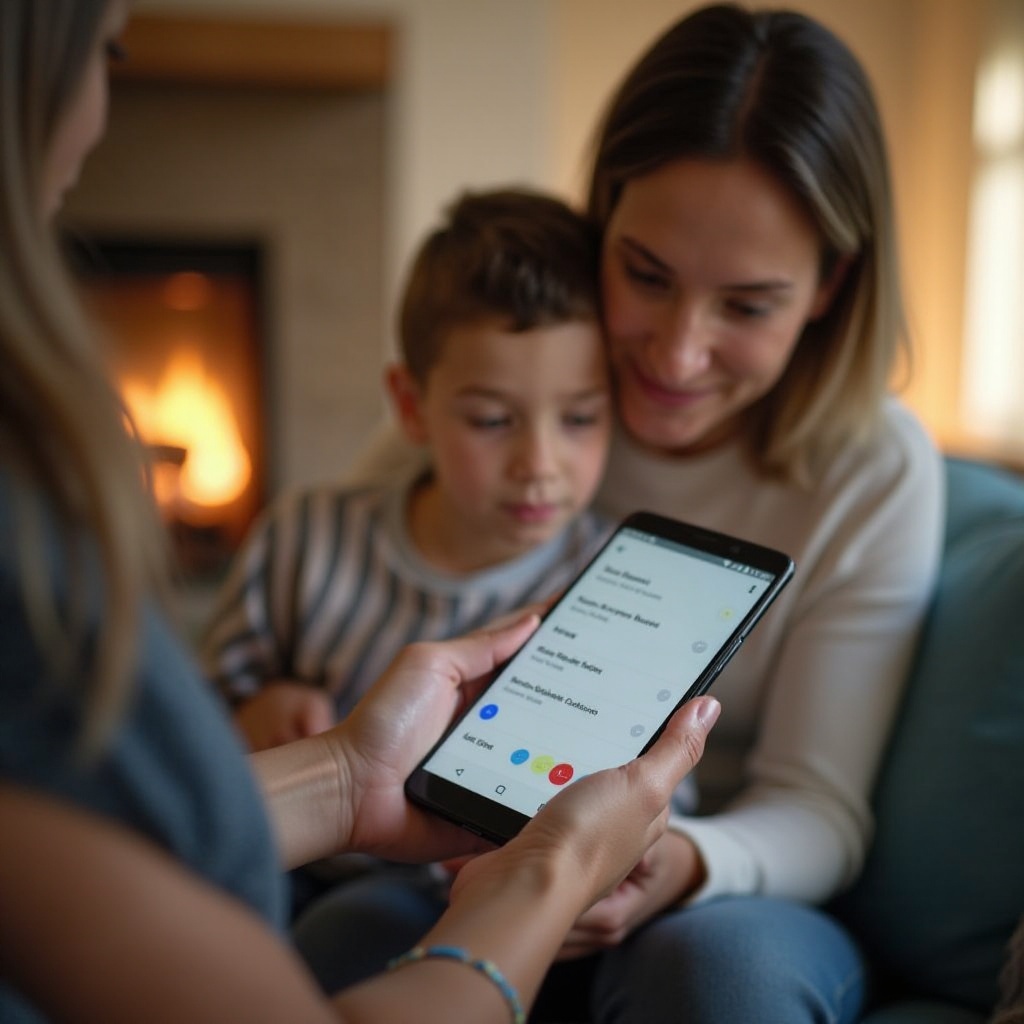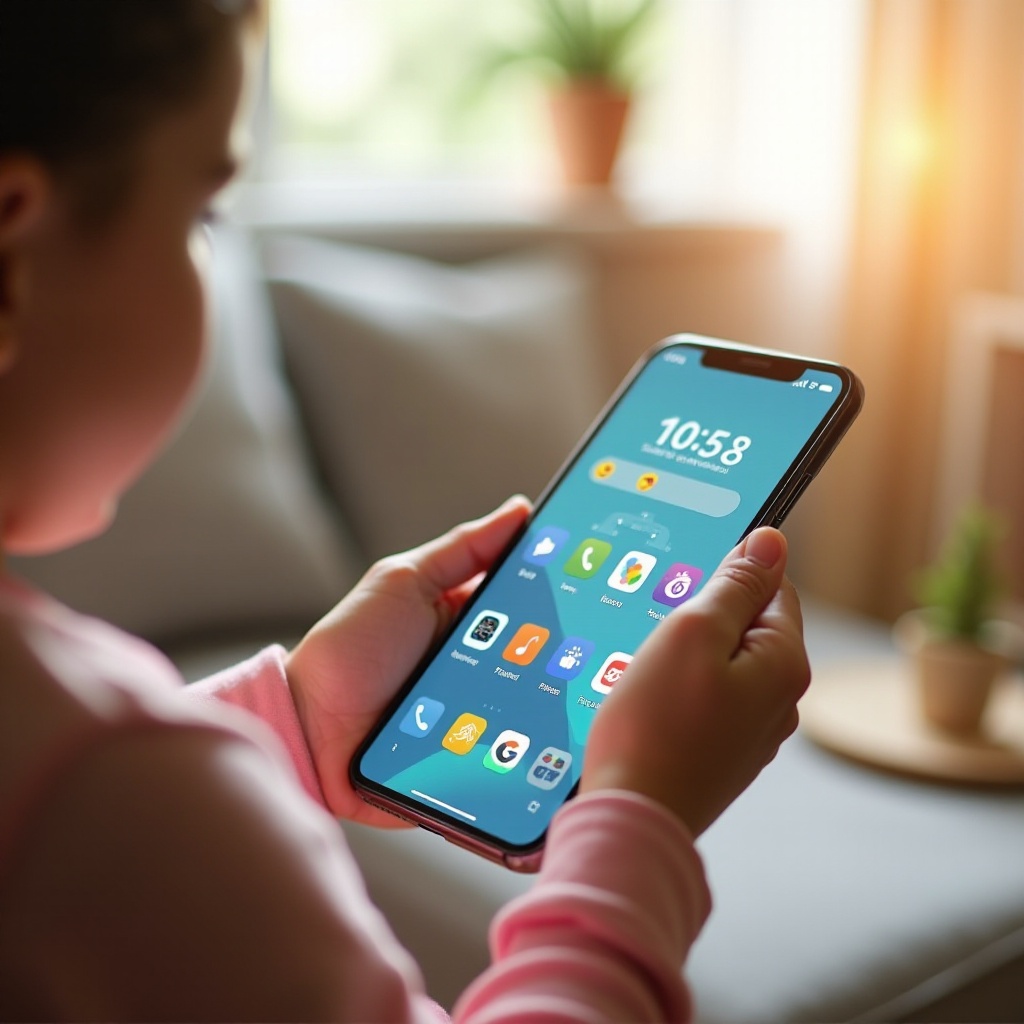The Comprehensive Guide to Locking Down Your Android Phone for Kids in 2024
Introduction
Balancing children’s safety and giving them some freedom can be tricky for parents, especially when it comes to smartphones. You want to ensure they are accessing content that is age-appropriate while maintaining the right balance of screen time. This guide provides a comprehensive look at how to lock down your Android phone for kids effectively in 2024. With the right tools and techniques, you can create a safe and controlled digital environment for your children.

Why It’s Essential to Control Your Kids’ Phone Usage
Controlling your kids’ phone usage is crucial for several reasons. Firstly, young minds are impressionable, and unrestricted internet access can expose them to inappropriate content. Also, excessive screen time can negatively impact their physical health, leading to issues like eye strain, poor posture, and disrupted sleep patterns.
Additionally, children often lack the ability to discern between credible and misleading information, making them susceptible to online dangers like cyberbullying and scams. Managing their phone use helps instill healthy habits that they can carry into adulthood. By locking down your child’s Android phone, you offer a safer, more controlled platform for them to explore, learn, and communicate.
Setting Up Parental Controls in Android
Effectively managing your child’s phone use starts with setting up parental controls. Android offers multiple ways to ensure your child’s phone is appropriately secured.
Using Built-in Features
Android’s built-in parental control features are accessible and user-friendly. Google Family Link is a great starting point, allowing you to create a supervised account for your child. With Family Link, you can:
- Monitor app installations and usage.
- Set screen time limits.
- Approve or block apps from the Google Play Store.
Best Parental Control Apps
Beyond built-in features, several parental control apps can enhance your ability to manage your child’s phone. Some of the best ones include:
- Qustodio: Offers comprehensive monitoring features and time limits.
- Norton Family: Well-integrated and provides detailed activity reports.
- MMGuardian: Allows parents to manage calls, texts, and app usage extensively.
Customizing App Restrictions
Customizing app restrictions helps in controlling your child’s exposure to various apps. You can set individual time limits for each app or restrict certain apps altogether if they are deemed inappropriate or distracting.

Creating a Child-Friendly Environment on Android
Fostering a child-friendly environment doesn’t stop at parental controls; customizing the phone’s user interface also plays a significant role.
Setting Up a Child Profile
Setting up a dedicated child profile on Android can segregate their applications and content from yours. This not only keeps their data safe but restricts access to your apps, providing a safer browsing environment suited to their age.
Kid-Friendly Home Screen Layout
Designing a home screen layout catered to your child’s needs is essential. Organize educational apps and tools where they are easily accessible while hiding or limiting access to apps that are not necessary for their use.
Essential Apps for Kids
There are several apps aimed at children that are both educational and engaging:
- Khan Academy Kids: Offers educational games and lessons.
- ABCmouse: Comprehensive early learning curriculum app.
- Tynker: Introduces kids to basic coding concepts through fun activities.

Managing and Monitoring Screen Time
Monitoring and managing screen time is pivotal in ensuring a balanced tech-life ratio for your child. This ensures they engage in offline activities and have a well-rounded development.
Google Family Link Setup
Google Family Link can be easily set up by downloading the app on both the parent’s and child’s device. Once installed, you can:
- Set daily screen time limits.
- View detailed reports on your child’s app usage and activities.
- Lock their device remotely when it’s time for a break or bedtime.
Scheduling Downtime and Breaks
Scheduling downtime allows you to control when the phone is off-limits:
- Create a daily schedule that includes downtime during homework and overnight.
- Use Family Link’s scheduling features to automatically lock the phone during these periods.
- Encourage breaks to reduce eye strain and attention fatigue.
Setting App Time Limits
Setting specific time limits on apps helps prevent overuse. For instance, you can limit social media apps to 30 minutes daily while giving educational apps a more extended period to be useful and productive.
Ensuring Online Safety for Your Child
Safety goes beyond physical wellness; it also includes secure online experiences. Here’s how you can achieve that:
Blocking Inappropriate Websites
Using Google Family Link or other parental control apps, you can block access to inappropriate websites. Most apps offer filtering options that automatically restrict access to adult or unsafe content.
Safe Browsing Settings
Enable Safe Browsing settings in Chrome to provide an additional layer of security. This ensures that explicit content is filtered out during web searches and regular browsing.
Teaching Safe Online Behavior
Educating your child about the importance of online safety is crucial. Teach them to:
- Never share personal information online.
- Recognize and avoid phishing attempts.
- Report any suspicious activities to you immediately.
Additional Tips for Long-Term Phone Management
Long-term management of your child’s Android phone usage involves more than just initial setup; continual adjustments and regular check-ins are vital.
Regular Security Updates
Always keep the phone’s operating system and apps updated to protect against security vulnerabilities and cyber threats.
App Permission Reviews
Regularly review app permissions to ensure that no unnecessary data is being shared. This helps maintain privacy and security for your child’s personal information.
Encouraging Offline Activities
Encourage your child to engage in offline activities. Whether it’s playing outdoors, reading books, or participating in hobbies, fostering a balanced lifestyle is crucial for their well-being.
Conclusion
Locking down your Android phone for kids is about creating a safe, educational, and balanced environment for your child. From setting up parental controls to managing screen time and ensuring online safety, the steps you’ve learned can be implemented easily with the right tools and apps. By maintaining regular check-ins and encouraging offline activities, you can offer a secure and enriching digital experience for your child.
Frequently Asked Questions
What are the best apps to use to lock down my child’s Android phone?
Some of the best apps include Google Family Link, Qustodio, and Norton Family. These apps offer comprehensive control over app usage, screen time, and content filtering.
How can I monitor my child’s phone usage without invading their privacy?
Using apps like Google Family Link allows you to oversee their activities without snooping through their messages and calls. Establishing mutual trust and open communication about online safety can also help.
What age is appropriate for a child to have their own Android phone?
There is no one-size-fits-all answer; it depends on the child’s maturity level. However, many experts suggest around the age of 11-13, with parental controls and guidance in place.


